Home>Articles>What Kind Of Batteries Are Used In Smoke Detectors?
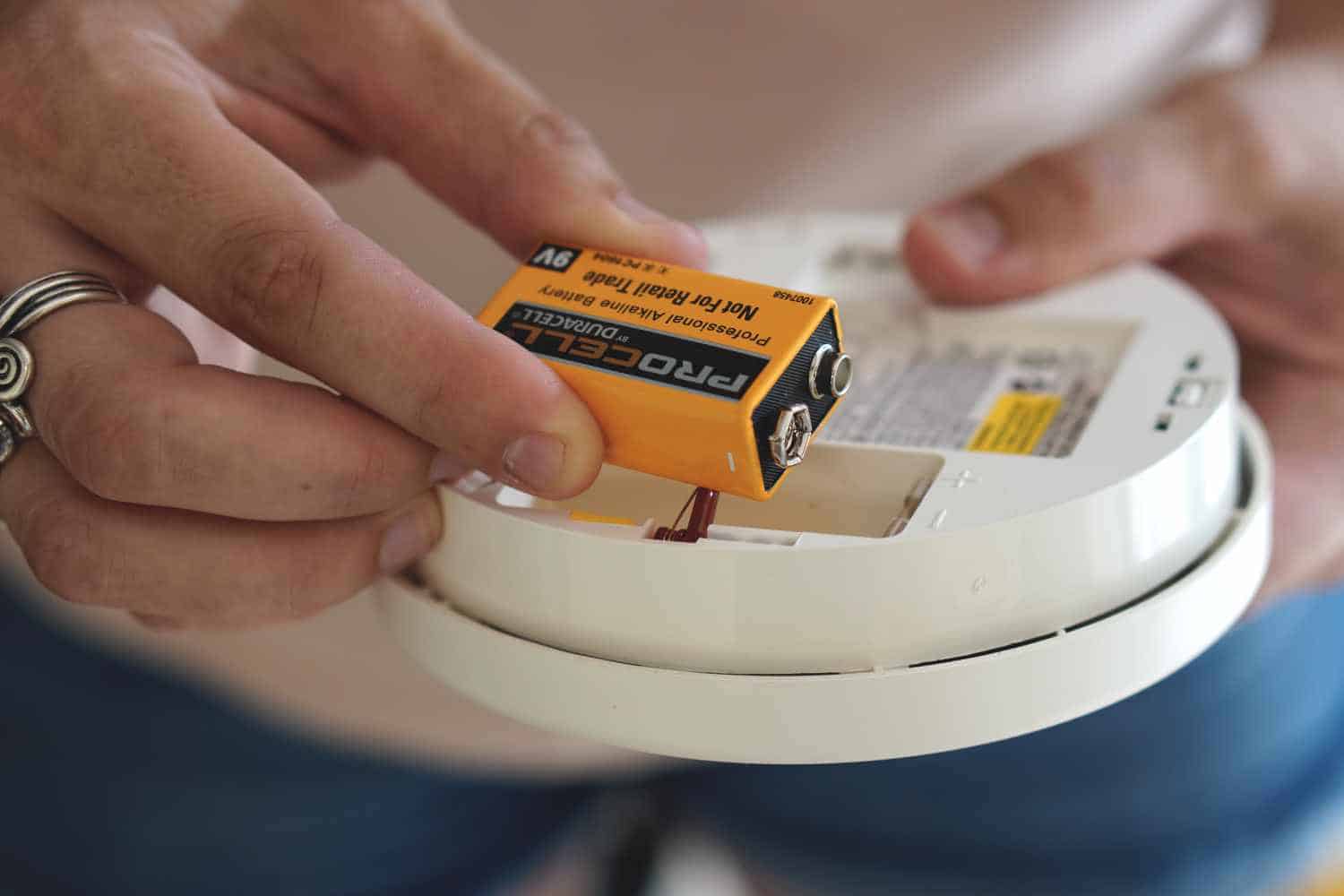

Articles
What Kind Of Batteries Are Used In Smoke Detectors?
Modified: February 24, 2024
Discover the various types of batteries used in smoke detectors in this informative article. Learn about different options for long-lasting and reliable battery power.
(Many of the links in this article redirect to a specific reviewed product. Your purchase of these products through affiliate links helps to generate commission for Storables.com, at no extra cost. Learn more)
Introduction
Welcome to our comprehensive guide on the batteries used in smoke detectors. Smoke detectors are an essential safety feature in every home, providing early warning in the event of a fire. These devices rely on batteries to power their operations, ensuring they can function effectively even during a power outage.
In this article, we will explore the different types of batteries commonly used in smoke detectors, their advantages and disadvantages, and how to choose the right battery for your specific smoke detector model. We will also provide valuable information on battery replacement and maintenance to ensure your smoke detector is always in optimal working condition.
Understanding the various battery options available for smoke detectors is crucial for maintaining the safety of your home and loved ones. While the type of battery you choose ultimately depends on your personal preferences and specific smoke detector model, it is important to consider factors such as longevity, reliability, and cost.
So, let’s dive in and learn more about the different batteries used in smoke detectors and how to make informed decisions when it comes to powering these essential safety devices.
Key Takeaways:
- Choose the right battery for your smoke detector by considering factors such as battery life, power output, reliability, and cost. Follow the manufacturer’s guidelines for optimal performance and safety.
- Regularly test, replace, and maintain your smoke detector batteries to ensure reliable operation. Keep spare batteries on hand, clean the detector, and follow manufacturer recommendations for a safe and protected home.
The Purpose of Smoke Detectors
Smoke detectors play a vital role in protecting lives and property by providing early warning of potential fires. These small devices are designed to detect the presence of smoke in the air and sound an alarm to alert occupants of a possible fire emergency.
The primary purpose of smoke detectors is to give people enough time to safely evacuate a building before the fire becomes uncontrollable. Inhaling smoke and toxic fumes can be deadly, and individuals may have only a few minutes to escape in case of a fire.
Smoke detectors are typically placed in strategic locations throughout a building, such as bedrooms, living rooms, hallways, and kitchens. They are designed to detect both the visible smoke particles and the invisible combustion particles in the air, triggering the alarm when the concentration reaches a certain threshold.
By quickly detecting the presence of smoke, smoke detectors provide valuable early warning, allowing individuals to take immediate action and prevent the spread of fire. They not only save lives but also help minimize property damage by enabling early fire suppression efforts.
It is important to note that smoke detectors are most effective when properly installed and maintained. Regular testing, battery replacement, and cleaning are essential to ensure the smoke detectors are in good working condition and capable of detecting smoke accurately.
Now that we understand the importance of smoke detectors, let’s explore the different types of batteries used to power these essential safety devices.
Overview of Smoke Detector Batteries
Smoke detectors rely on batteries to provide the necessary power for their operation. These batteries come in various types, each with its own characteristics and advantages. Let’s take a closer look at the most common types of batteries used in smoke detectors:
- Alkaline Batteries: Alkaline batteries are widely used in smoke detectors due to their affordability and easy availability. They provide reliable power and have a relatively long lifespan, typically lasting for one to two years. However, alkaline batteries tend to lose their power gradually, so it’s essential to replace them promptly to ensure optimal performance.
- Lithium Batteries: Lithium batteries are another popular choice for smoke detectors. They offer a longer lifespan compared to alkaline batteries and can potentially last up to ten years. Lithium batteries provide consistent power output throughout their lifespan, making them ideal for homeowners who prefer a low-maintenance option.
- Lithium-ion Batteries: Lithium-ion batteries are rechargeable batteries commonly found in other electronic devices. While they are not as widely used in smoke detectors, some models do support their use. Lithium-ion batteries offer the convenience of recharging, eliminating the need for frequent battery replacements. However, they require a compatible smoke detector model and a dedicated charging system.
- Rechargeable Batteries: Rechargeable batteries, such as nickel-metal hydride (NiMH) or nickel-cadmium (NiCd) batteries, can also be used in smoke detectors. These batteries can be recharged once their power runs out, reducing the need for frequent replacements. However, it’s important to consider that rechargeable batteries may have a shorter lifespan compared to non-rechargeable options.
When choosing a battery for your smoke detector, it’s important to consider factors such as cost, lifespan, and availability. Additionally, it’s crucial to refer to the manufacturer’s guidelines and recommendations for your specific smoke detector model to ensure you are using the appropriate battery type.
Next, let’s explore the common battery sizes used in smoke detectors and discuss how to choose the right battery for your device.
Alkaline Batteries
Alkaline batteries are one of the most commonly used types of batteries in smoke detectors. They are widely available, affordable, and provide reliable power for a variety of devices, including smoke detectors.
Alkaline batteries are composed of a zinc-based anode and a manganese dioxide cathode. The anode and cathode are separated by an alkaline electrolyte, hence the name “alkaline” battery. This design allows for a stable chemical reaction that produces a reliable and consistent flow of electrical energy.
One of the main advantages of alkaline batteries is their relatively long lifespan. Under normal operating conditions, alkaline batteries can typically power a smoke detector for one to two years before needing replacement. However, it’s crucial to note that the actual lifespan can vary depending on factors such as the frequency of alarms, the quality of the battery, and environmental conditions.
When using alkaline batteries in smoke detectors, it’s important to keep in mind that they gradually lose their power over time. As the energy level decreases, the smoke detector may start to emit a low battery warning, usually in the form of a chirping sound. When you hear this warning, it’s crucial to replace the battery promptly to ensure the smoke detector’s optimal functionality.
When choosing alkaline batteries for your smoke detector, it’s advisable to opt for reputable brands that offer high-quality and reliable performance. While alkaline batteries are generally a cost-effective option, keep in mind that investing in reputable brands can provide greater longevity and reliability.
Remember to check the manufacturer’s recommendations for your specific smoke detector model regarding the size and type of batteries to use. It’s generally recommended to use fresh batteries of the same brand and type for optimal performance.
In the next section, we will explore another common type of battery used in smoke detectors: lithium batteries.
Lithium Batteries
Lithium batteries are a popular choice for powering smoke detectors due to their exceptional performance and long lifespan. These batteries utilize lithium as the active material for both the anode and cathode, resulting in a high energy density and reliable power output.
One of the main advantages of lithium batteries is their extended lifespan compared to other battery types. In smoke detectors, lithium batteries can typically last up to ten years, providing long-term reliability and peace of mind. This longer lifespan reduces the frequency of battery replacements, making them a convenient option for homeowners.
Lithium batteries also offer consistent power output throughout their lifespan. Unlike some other battery types that experience voltage drops as they deplete, lithium batteries maintain a stable voltage level, ensuring reliable operation of the smoke detector until the battery needs replacement.
It’s important to note that not all smoke detectors are compatible with lithium batteries. Therefore, it’s crucial to refer to the manufacturer’s guidelines and recommendations for your specific smoke detector model. Some smoke detectors may require a specific type or size of lithium battery to function optimally.
While lithium batteries offer exceptional performance, it’s important to consider that they can be more expensive than other battery options. However, the longer lifespan and reliable power output justify the higher initial cost for many homeowners.
When using lithium batteries in smoke detectors, it’s essential to replace them with fresh lithium batteries of the same brand and model as the original. Mixing different brands or types of lithium batteries can result in inconsistencies in power output and potentially compromise the smoke detector’s functionality.
In the next section, we will discuss another type of battery that is becoming more common in certain smoke detectors: lithium-ion batteries.
Lithium-ion Batteries
Lithium-ion batteries are rechargeable batteries that are commonly used in various electronic devices, such as smartphones and laptops. While they are not as widely used in smoke detectors as other battery types, some models are compatible with lithium-ion batteries.
Lithium-ion batteries offer the convenience of being rechargeable, eliminating the need for frequent battery replacements. These batteries use lithium ions to move between the anode and cathode during the charging and discharging process. This allows for multiple charging cycles, making them a cost-effective and environmentally friendly option in the long run.
When using lithium-ion batteries in smoke detectors, it’s important to ensure compatibility with your specific smoke detector model. Not all smoke detectors support the use of lithium-ion batteries, so it’s crucial to consult the manufacturer’s guidelines and recommendations before using them.
Replacing traditional non-rechargeable batteries with lithium-ion batteries in compatible smoke detectors offers several benefits. In addition to the convenience of recharging, lithium-ion batteries provide a higher energy density, which means they can potentially offer a longer runtime between charges compared to other battery types.
However, it’s important to keep in mind that lithium-ion batteries have a limited lifespan. Over time, their capacity may diminish, resulting in reduced runtime between charges. It’s advisable to monitor the battery’s performance and replace it when necessary to ensure the smoke detector functions optimally.
If your smoke detector supports the use of lithium-ion batteries, it’s crucial to follow the proper charging procedures specified by the manufacturer. Using a dedicated charging system, compatible with the specific lithium-ion battery used in your smoke detector, will ensure safe and efficient charging.
While the initial cost of lithium-ion batteries may be higher compared to other battery types, the long-term convenience and potential energy savings make them an attractive option for certain homeowners.
Next, we will explore the use of rechargeable batteries, such as nickel-metal hydride (NiMH) or nickel-cadmium (NiCd) batteries, in smoke detectors.
Always use long-lasting, high-quality alkaline batteries in smoke detectors. Check the manufacturer’s recommendations for the specific type of battery required for your detector. Regularly test and replace the batteries to ensure your smoke detector is always functioning properly.
Rechargeable Batteries
Rechargeable batteries, such as nickel-metal hydride (NiMH) or nickel-cadmium (NiCd) batteries, offer an alternative option for powering smoke detectors. These batteries can be recharged multiple times, reducing the need for frequent battery replacements and providing cost savings in the long run.
NiMH and NiCd batteries operate on the principle of using chemical reactions to store and release electrical energy. They are capable of being recharged through a charging process that reverses the chemical reactions within the battery.
One of the main advantages of using rechargeable batteries in smoke detectors is their reduced environmental impact. By opting for rechargeable batteries, you can reduce the number of disposable batteries discarded into landfills, contributing to a more sustainable lifestyle.
However, it’s important to note that rechargeable batteries may have a shorter lifespan compared to non-rechargeable options. Over time, their capacity may decrease, resulting in reduced runtime. Regular monitoring and replacement of rechargeable batteries are crucial to ensure the smoke detector’s reliable operation.
When considering rechargeable batteries, it’s important to select the appropriate battery chemistry and size for your smoke detector. Make sure to refer to the manufacturer’s guidelines and recommendations to ensure compatibility.
It’s crucial to keep in mind that different rechargeable battery chemistries have different characteristics. NiMH batteries offer a higher capacity and lower self-discharge rate compared to NiCd batteries. However, NiCd batteries have a higher tolerance for extreme temperatures and can provide a more stable power output under varying conditions.
Additionally, it’s important to use a compatible charging system when recharging your batteries. Follow the manufacturer’s recommendations for the appropriate charger to ensure safe and efficient recharging.
Rechargeable batteries can be a good option for homeowners looking for a more environmentally friendly and cost-effective solution for powering their smoke detectors. However, it’s essential to monitor the battery’s performance and replace it when necessary to ensure optimal functionality.
In the next section, we will discuss the common battery sizes used in smoke detectors and provide guidance on choosing the right battery for your specific device.
Common Battery Sizes for Smoke Detectors
Smoke detectors come in various sizes and designs, and the type of battery required will depend on the specific model. Here are some of the most common battery sizes used in smoke detectors:
- 9V Batteries: 9V batteries are widely used in many smoke detectors. They are a popular choice due to their convenient size and availability. 9V batteries are rectangular in shape and have a snap-on type connector that makes them easy to insert and replace.
- AA Batteries: AA batteries, also known as double-A batteries, are another commonly used size in smoke detectors. They are cylindrical in shape and provide a reliable power source for many household devices, including smoke detectors.
- AAA Batteries: AAA batteries, or triple-A batteries, are smaller in size than AA batteries. They are often used in compact smoke detectors or devices where space is limited. AAA batteries are cylindrical and provide a compact yet efficient power source.
- C Batteries: C batteries are larger in size compared to AA and AAA batteries. They are cylindrical and often used in smoke detectors that require higher power output or have larger battery compartments.
- D Batteries: D batteries are even larger than C batteries. They provide a higher capacity and longer lifespan compared to smaller battery types. D batteries are typically used in smoke detectors that require a significant amount of power or have extended battery life requirements.
It is crucial to refer to the manufacturer’s guidelines and recommendations for your specific smoke detector model to determine the correct battery size. Using the appropriate battery size ensures a proper fit and optimal performance of the smoke detector.
While 9V and AA batteries are the most common battery sizes for smoke detectors, it’s important to confirm the required battery size before purchasing replacements. Using the wrong battery size can result in improper fitment, which may affect the smoke detector’s functionality.
Now that we have explored the common battery sizes for smoke detectors, let’s discuss how to choose the right battery for your specific device.
Choosing the Right Battery for Your Smoke Detector
Choosing the right battery for your smoke detector is essential to ensure optimal performance and reliable operation. Here are some factors to consider when selecting a battery for your specific smoke detector model:
- Refer to Manufacturer’s Guidelines: The first step in choosing the right battery is to consult the manufacturer’s guidelines and recommendations. The manufacturer will specify the compatible battery types, sizes, and any specific requirements for your smoke detector model.
- Battery Life: Consider the expected battery life for each battery type. Some batteries, like lithium batteries, offer longer lifespans compared to others. Assess your needs and preferences to determine whether a longer battery life is a priority for you.
- Power Output: Take into account the power requirements of your smoke detector. Some models may require higher power output, especially those with additional features like interconnected alarms or built-in carbon monoxide detectors. Ensure the battery you choose can supply the necessary power for proper functioning.
- Longevity: Evaluate the longevity of the battery. Some battery types may gradually lose power over time, requiring more frequent replacements. Consider how often you want to replace batteries and choose a battery type that aligns with your preferences.
- Reliability: Look for batteries that are known for their reliability and consistent performance. Opt for reputable brands and read customer reviews to gauge the overall satisfaction and reliability of the battery you are considering.
- Cost: Consider your budget when choosing a battery. Different battery types and brands come with varying price points. While it’s important to consider the cost, prioritize performance and reliability to ensure the safety of your home.
By taking these factors into account, you can make an informed decision when selecting the right battery for your smoke detector. Remember, it’s crucial to follow the manufacturer’s recommendations to ensure compatibility and optimal performance.
Now that you have chosen the right battery for your smoke detector, let’s discuss battery replacement and maintenance to ensure the longevity and effectiveness of your device.
Read more: How To Put A Battery In A Smoke Detector
Battery Replacement and Maintenance
Battery replacement and maintenance are essential for ensuring that your smoke detector operates effectively and reliably. Here are some key points to keep in mind:
- Regular Testing: Test your smoke detector regularly, following the manufacturer’s instructions. This allows you to verify that the alarm sound is loud and clear and that the battery and sensor are functioning correctly.
- Follow Manufacturer’s Recommendations: Always refer to the manufacturer’s guidelines for the recommended battery replacement schedule. While some batteries may last for several years, it’s important to proactively replace them, even before the low battery warning chirps, to ensure uninterrupted operation.
- Use Fresh Batteries: When replacing the batteries, use fresh batteries of the same type and brand recommended by the manufacturer. Avoid using expired or damaged batteries, as they may result in unreliable performance or even damage the smoke detector.
- Maintain a Spare Battery: It’s a good idea to keep a spare set of batteries readily available so that you can replace them immediately when needed. This ensures that your smoke detector remains operational at all times, even during unexpected battery failures.
- Cleaning and Inspections: Regularly clean your smoke detector to remove any dust or debris that may interfere with its sensors. Use a soft, dry cloth to wipe the exterior and gently clean the sensor openings. Additionally, inspect the detector for any signs of damage or wear, such as cracks or loose connections, and address them promptly.
- Consider Battery-Powered vs. Hardwired Detectors: If your smoke detector is hardwired into your home’s electrical system, it may still have a battery backup. In this case, follow the same battery replacement and maintenance guidelines for the backup battery. If your smoke detector is solely battery-powered, ensure you are vigilant about battery replacement and testing.
By following these battery replacement and maintenance practices, you can ensure that your smoke detector remains in optimal working condition and provides reliable protection for your home and loved ones.
Now that we have covered battery replacement and maintenance, let’s conclude our article.
Conclusion
Smoke detectors are essential safety devices that provide early warning in the event of a fire, allowing people to evacuate and minimize potential harm. These devices rely on batteries to ensure constant operation, even during power outages. In our comprehensive guide, we have explored the different types of batteries commonly used in smoke detectors.
Alkaline batteries, lithium batteries, lithium-ion batteries (in compatible models), and rechargeable batteries offer various advantages, such as long lifespan, consistent power output, and convenience. The choice of battery should be based on factors including battery life, power output, reliability, and cost.
It is crucial to follow the manufacturer’s guidelines and recommendations regarding battery size and type for your specific smoke detector model. Regular testing, timely battery replacements, and proper maintenance ensure the smoke detector’s optimal performance.
Remember to test your smoke detector regularly to verify that the alarm sound is loud and clear. Stay proactive and replace batteries according to the manufacturer’s recommended schedule, even before the low battery warning chirps. Always use fresh batteries of the same type and brand, and keep a spare set readily available for immediate replacement.
Additionally, clean the smoke detector to remove dust and debris, inspect it for any signs of damage, and address any issues promptly. Take into consideration whether your smoke detector is battery-powered or hardwired with battery backup, and adjust your maintenance practices accordingly.
A well-maintained smoke detector with the right battery ensures that your home and loved ones are protected from potential fire hazards. By understanding the different batteries used in smoke detectors and following proper maintenance guidelines, you can rest assured that your smoke detector will function reliably when it matters most.
Thank you for reading our comprehensive guide on the batteries used in smoke detectors. Stay safe, and remember to prioritize the regular maintenance and care of your smoke detectors to ensure your home remains protected.
Frequently Asked Questions about What Kind Of Batteries Are Used In Smoke Detectors?
Was this page helpful?
At Storables.com, we guarantee accurate and reliable information. Our content, validated by Expert Board Contributors, is crafted following stringent Editorial Policies. We're committed to providing you with well-researched, expert-backed insights for all your informational needs.
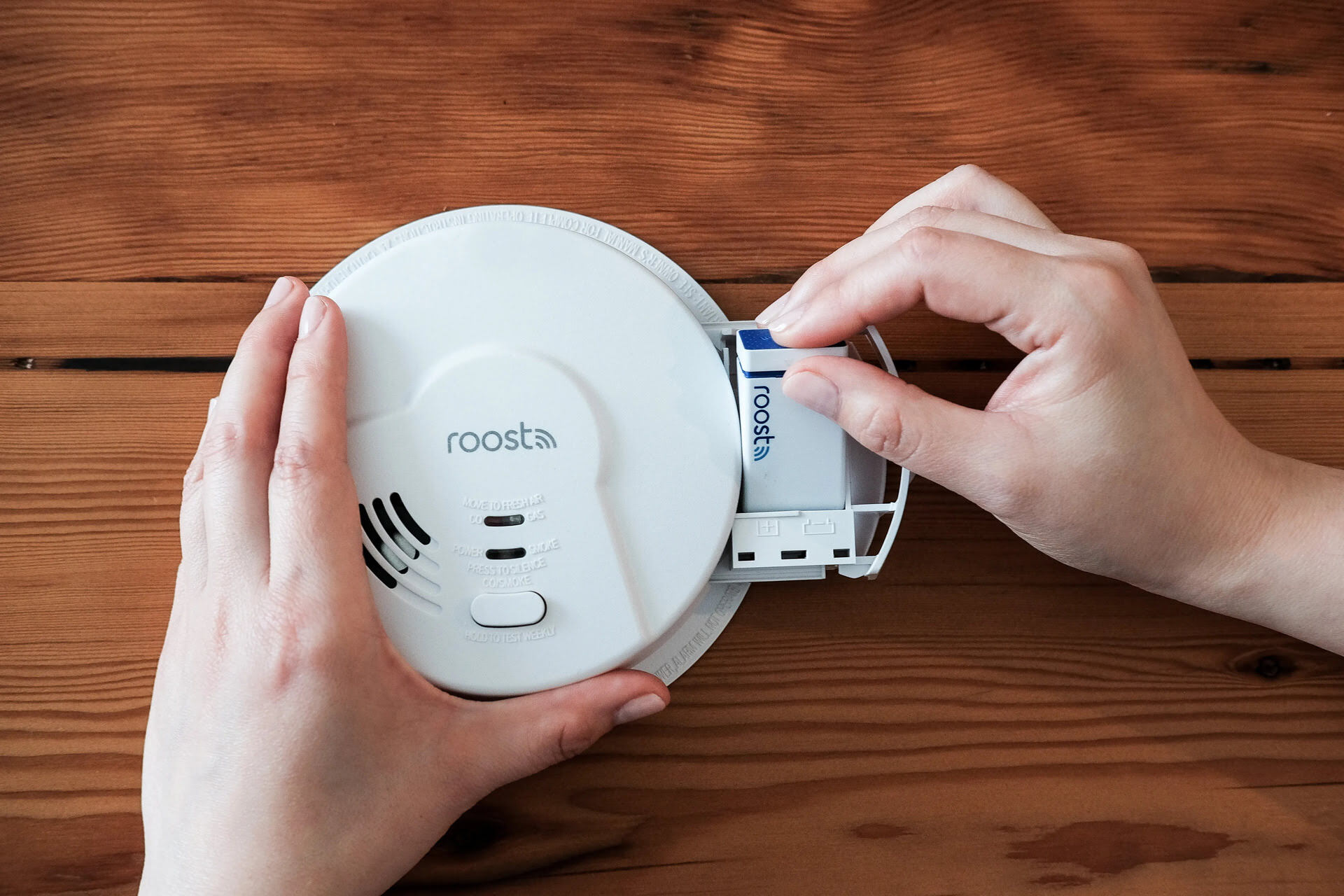
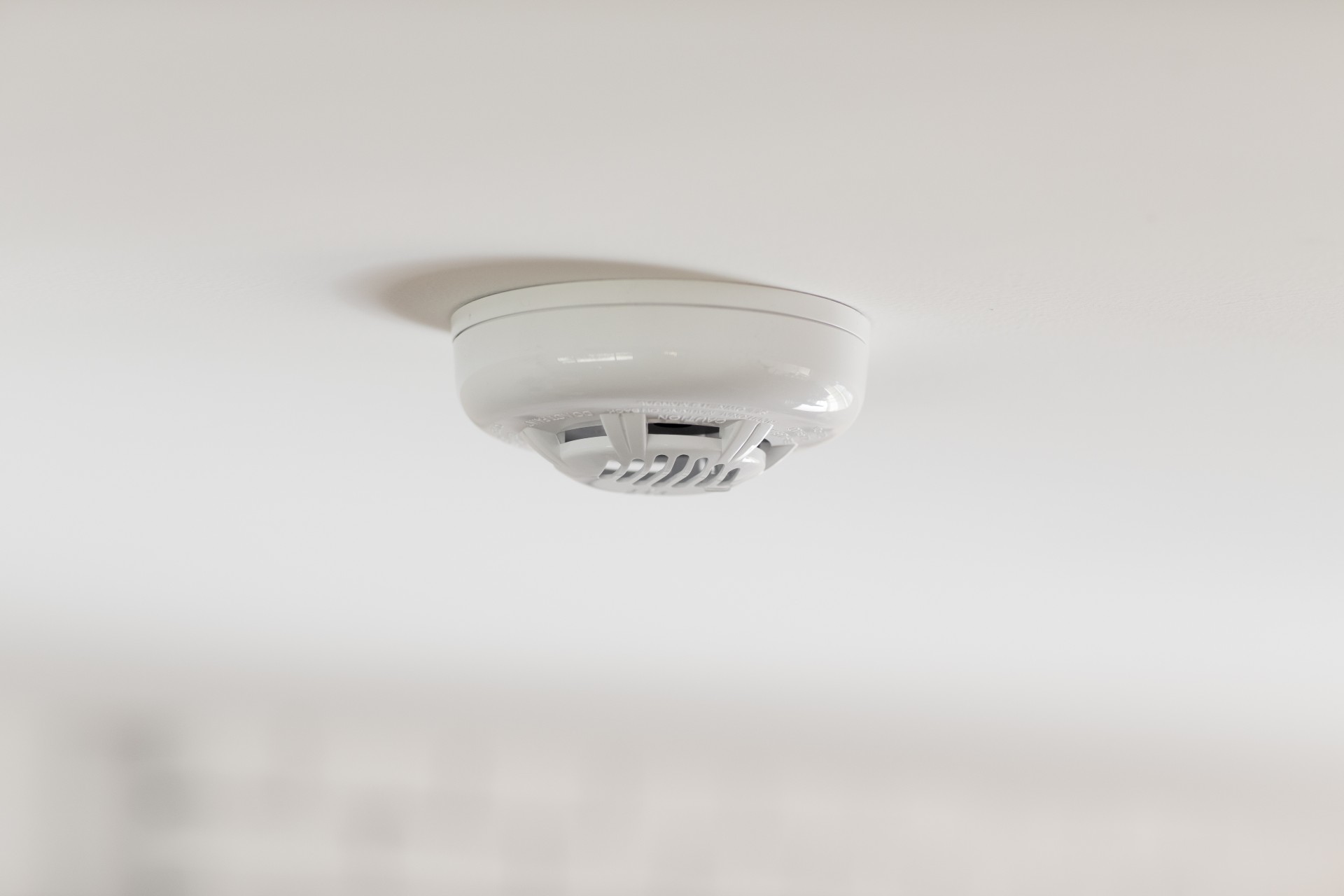
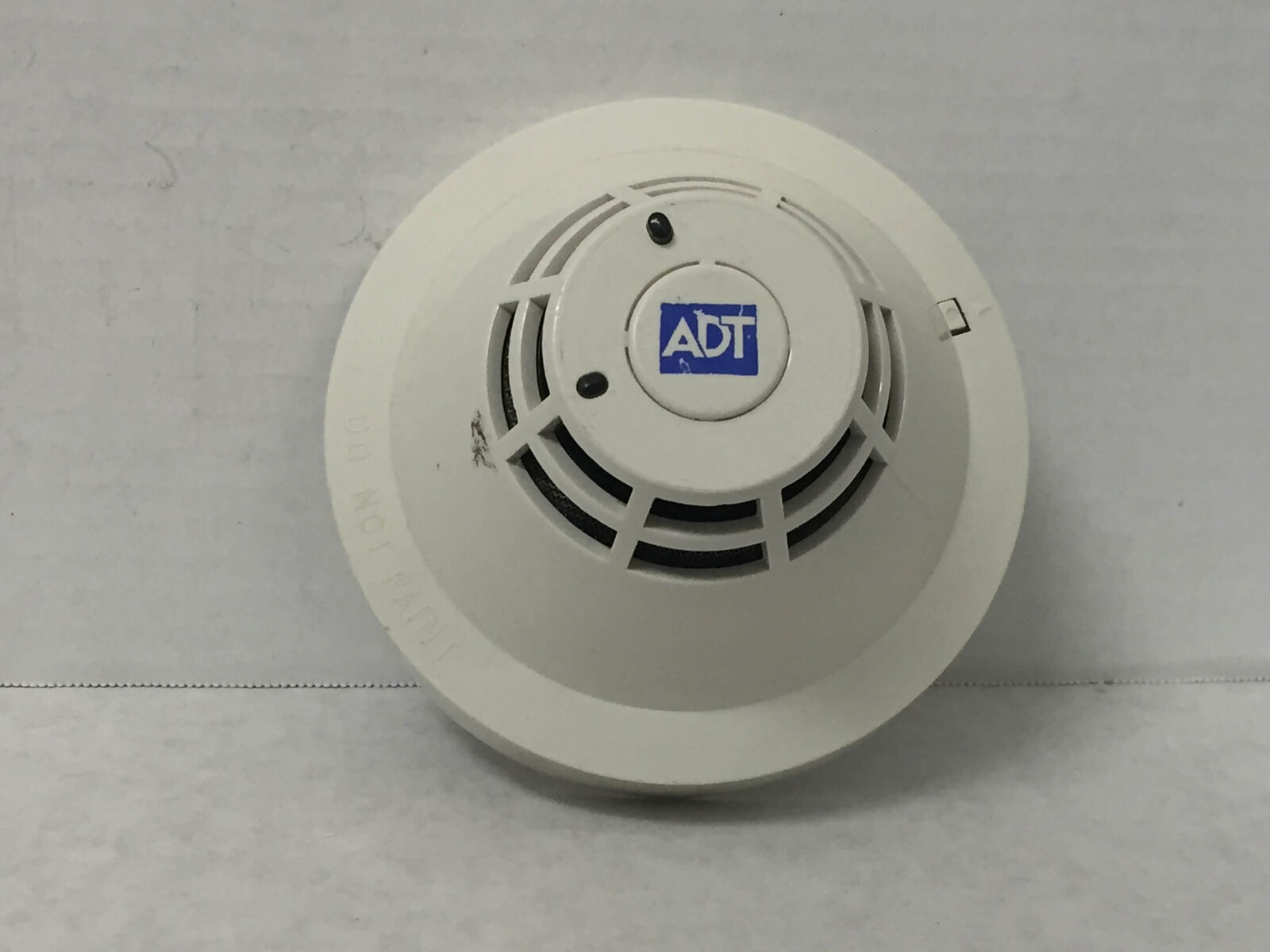
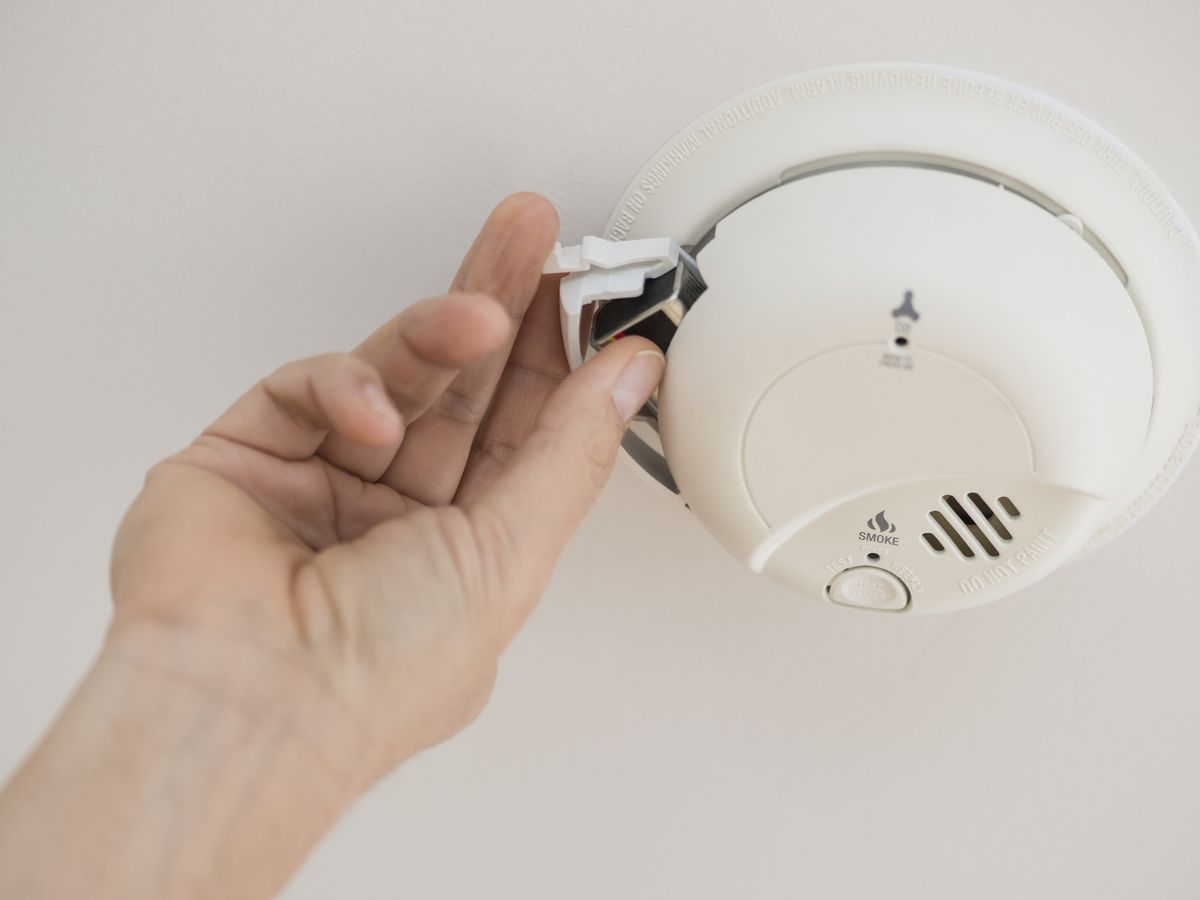
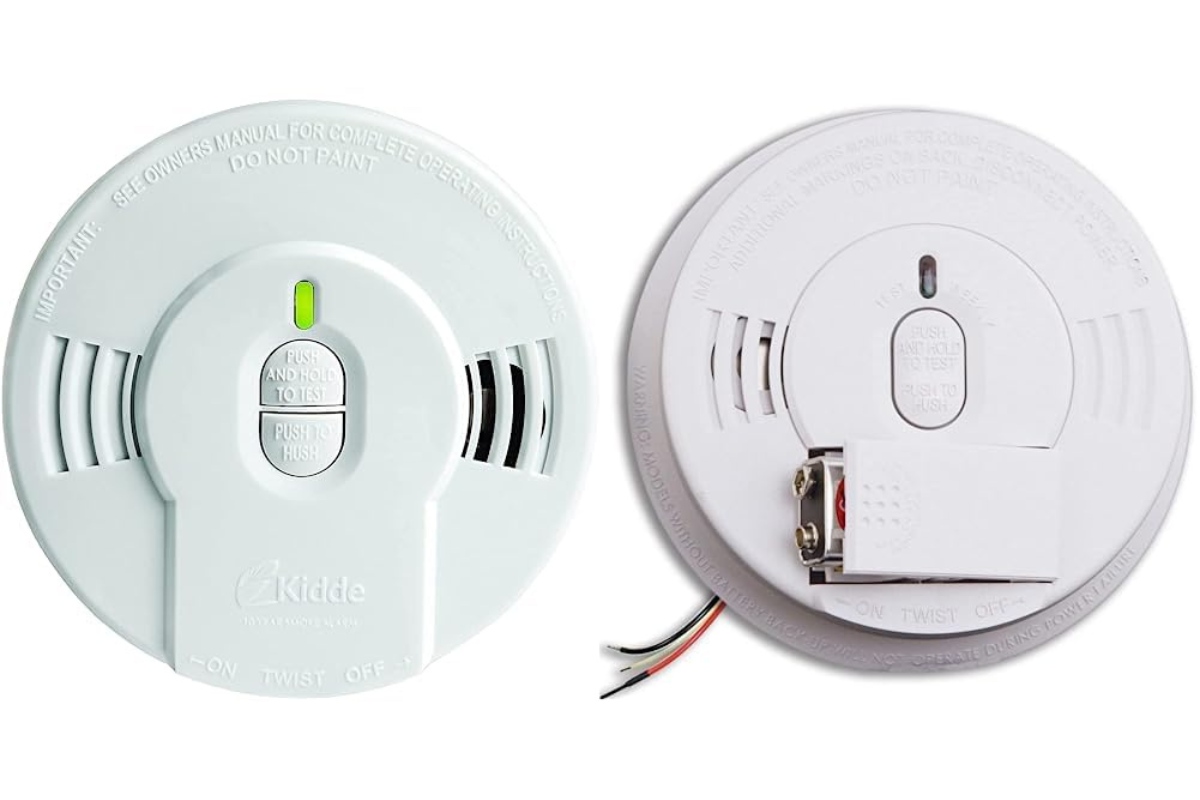
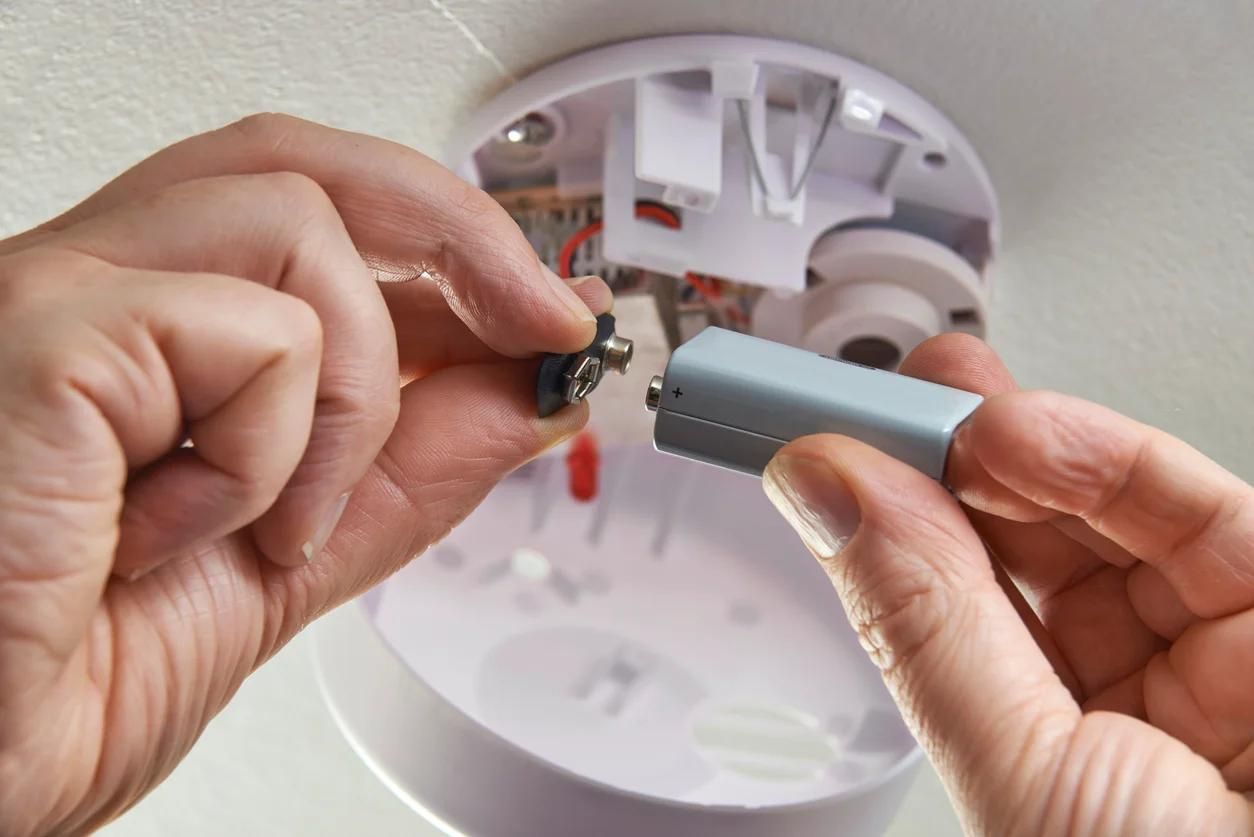
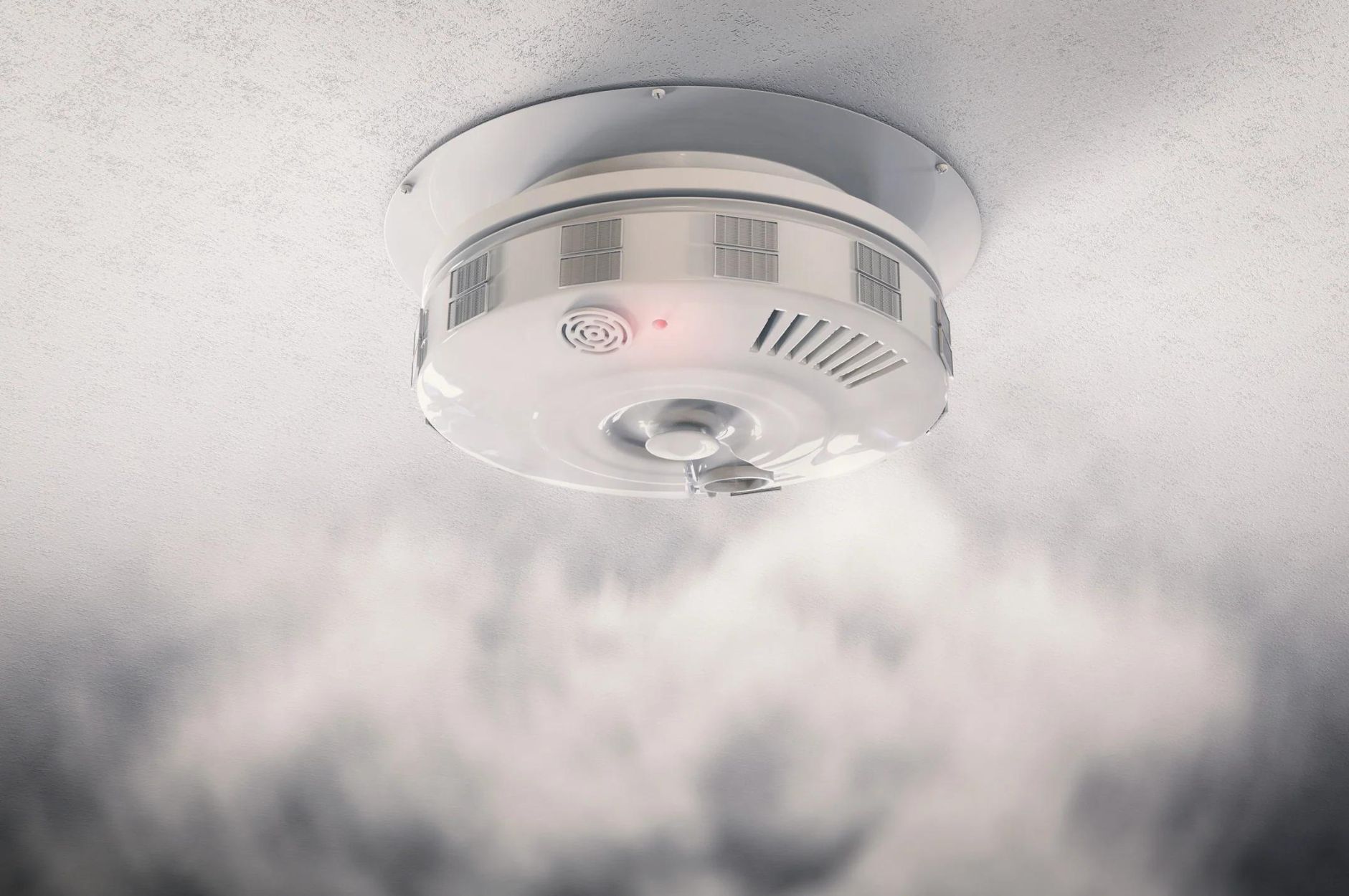
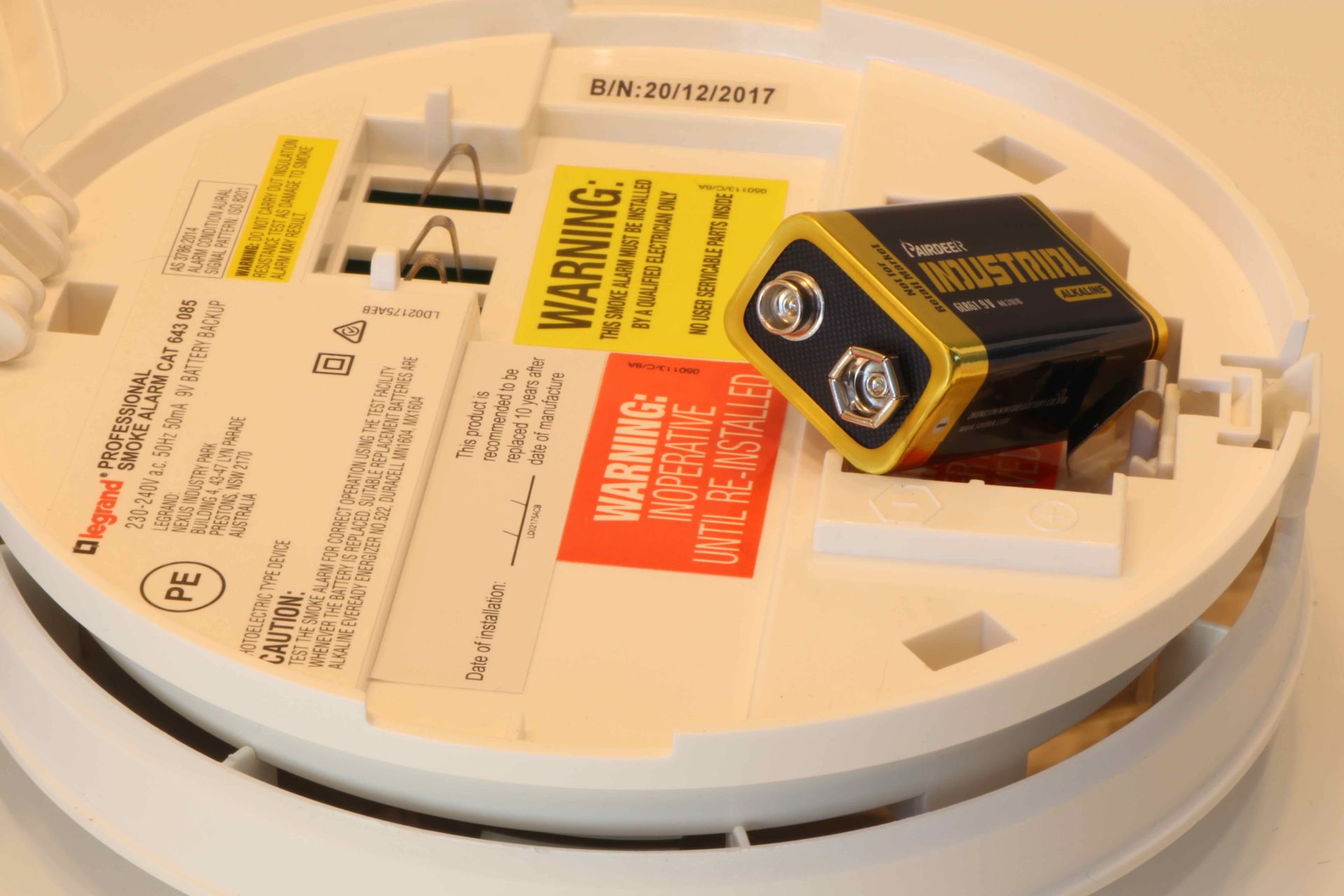
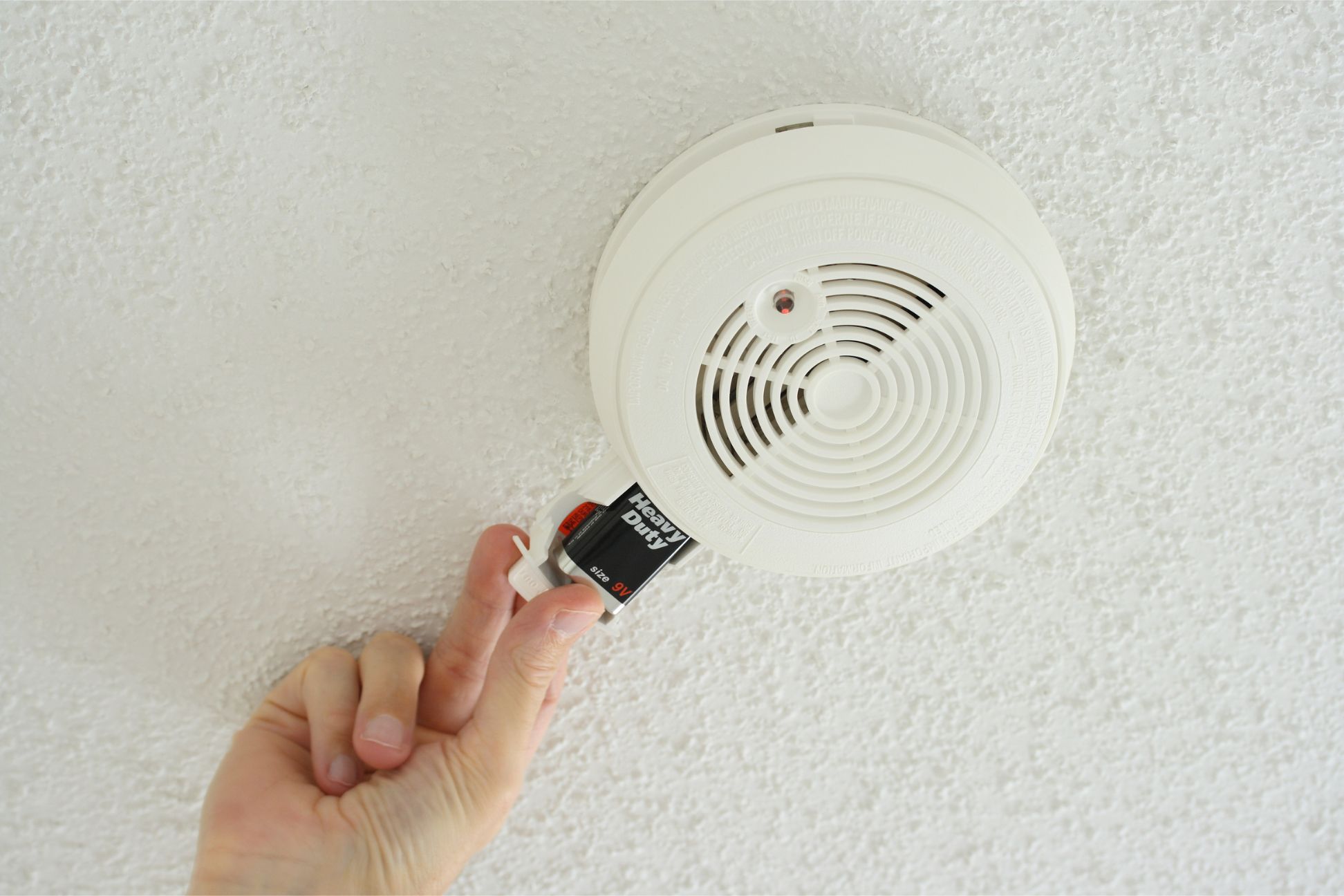

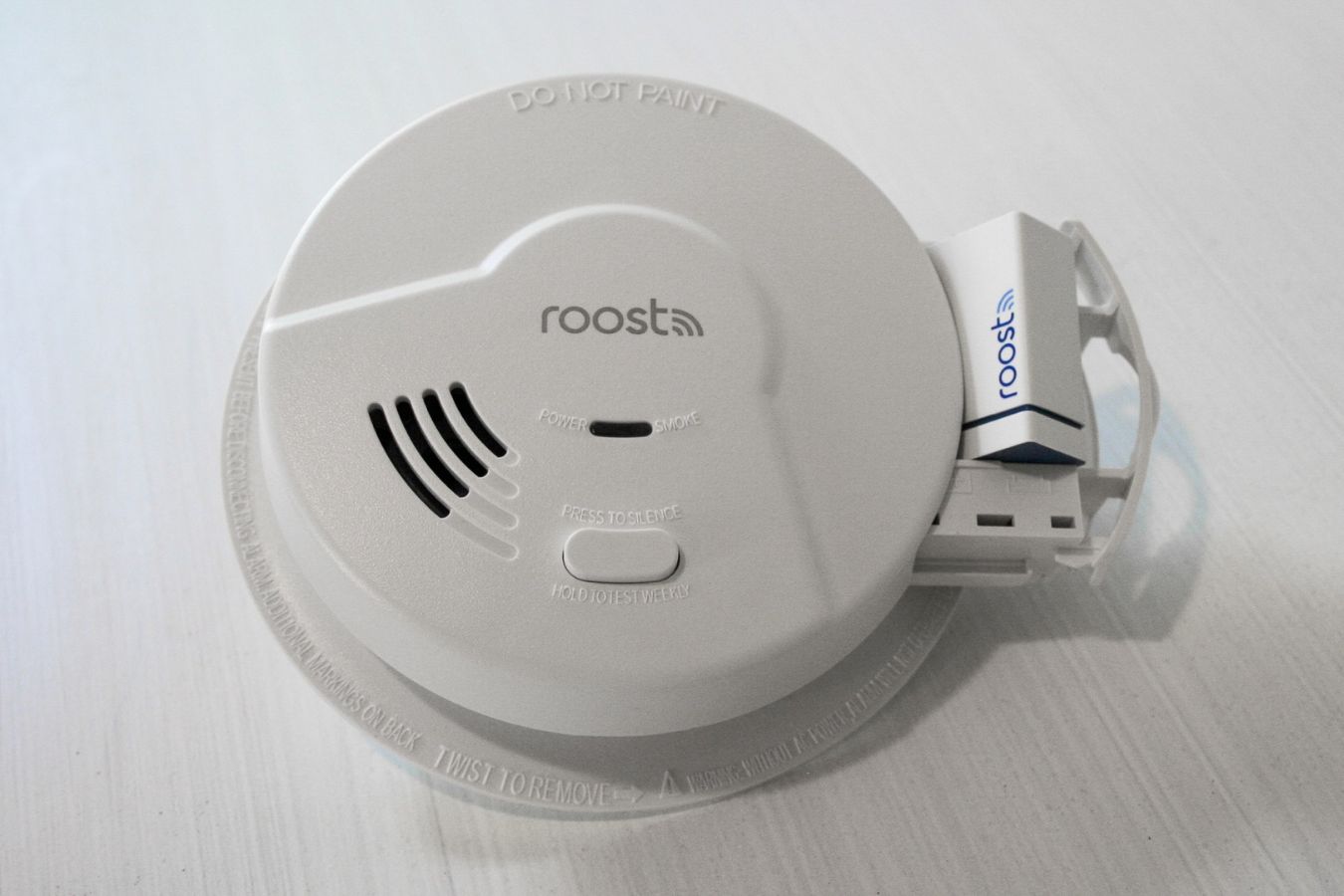
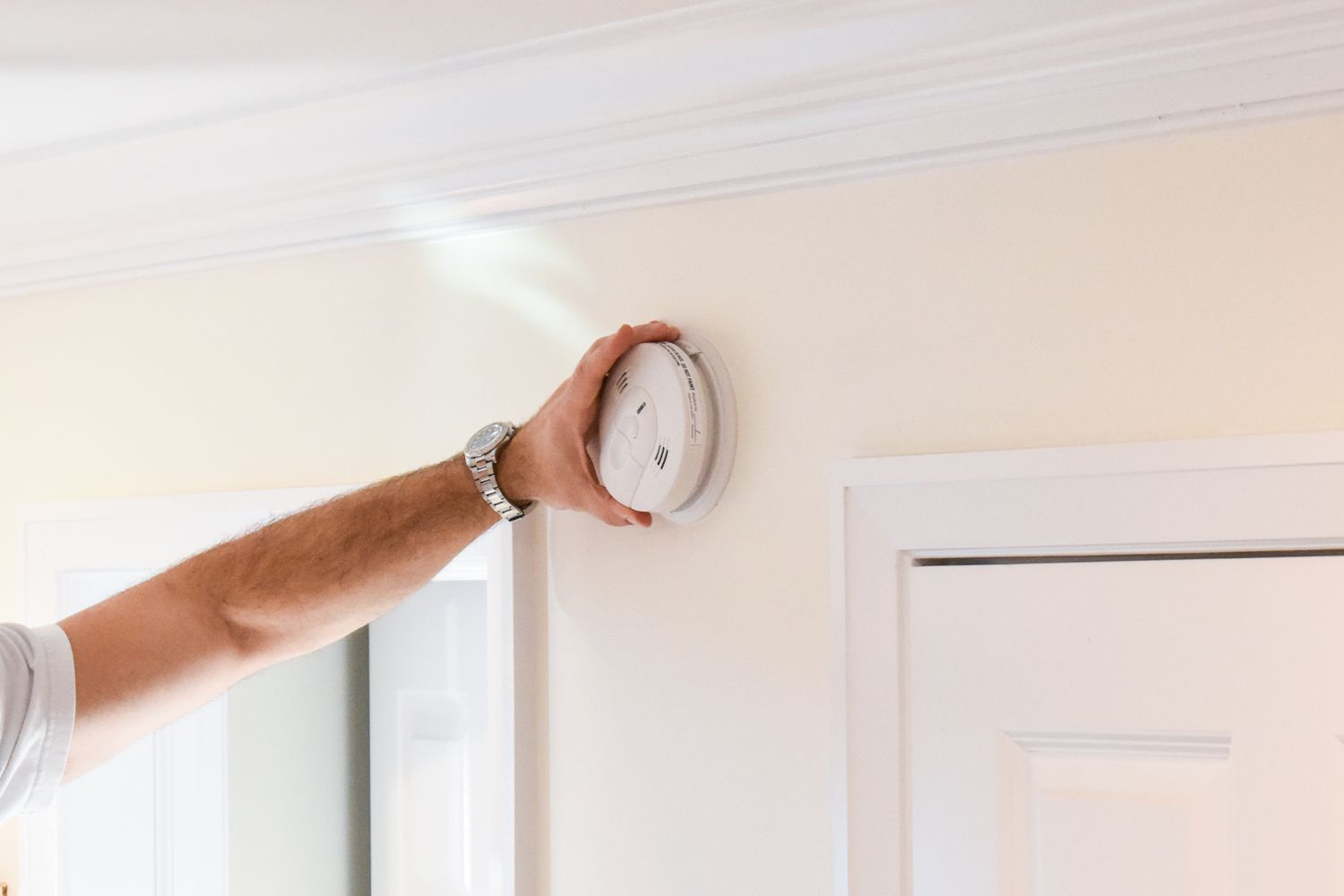
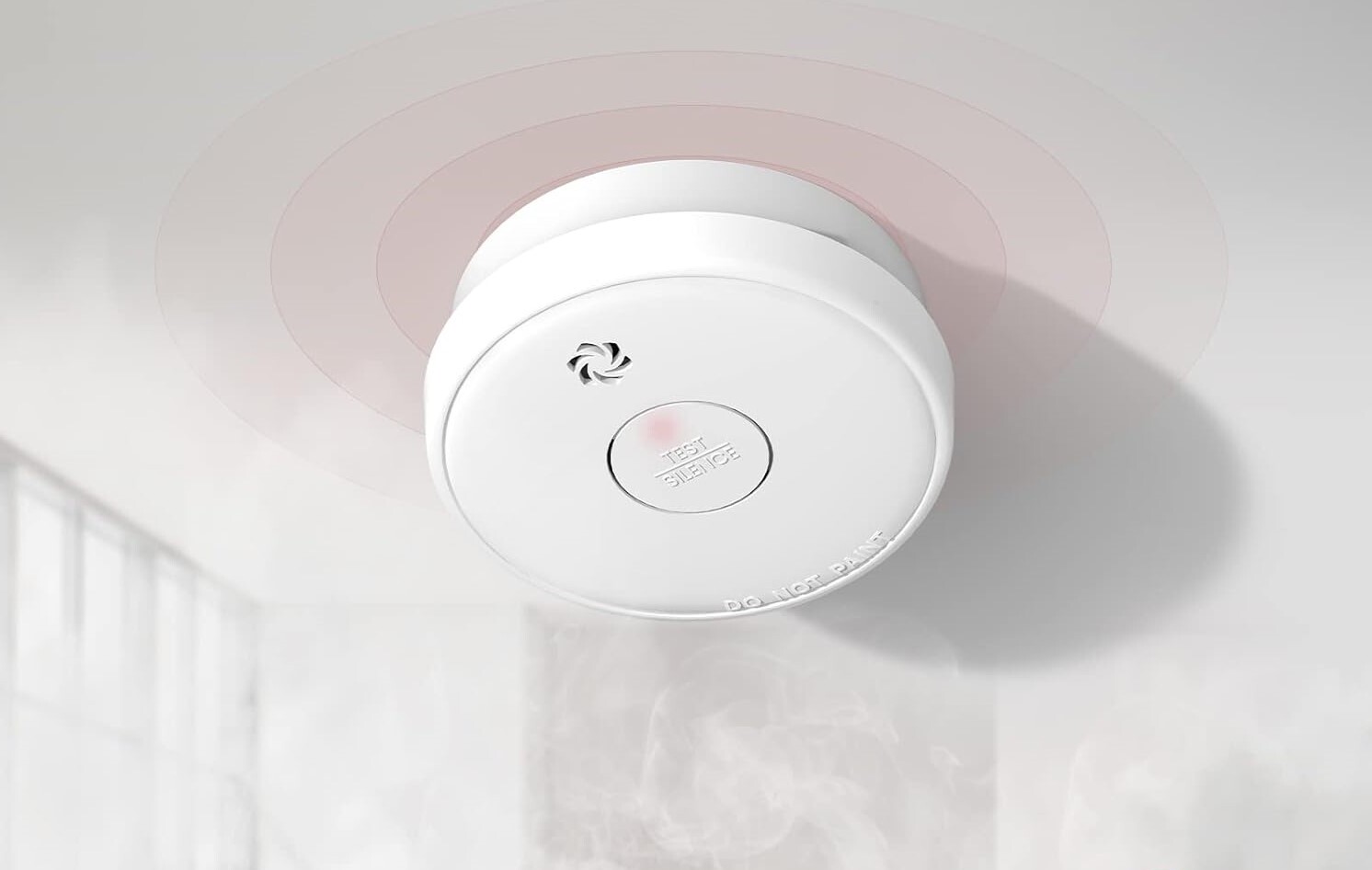

0 thoughts on “What Kind Of Batteries Are Used In Smoke Detectors?”